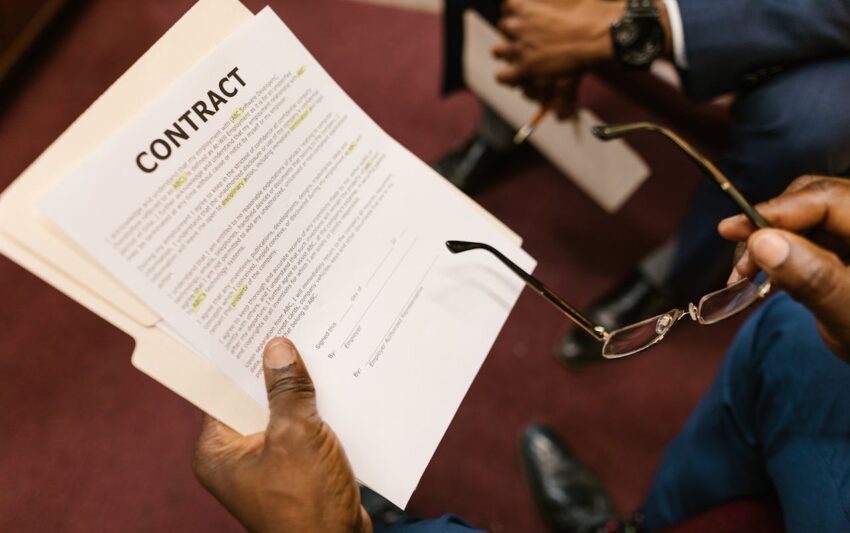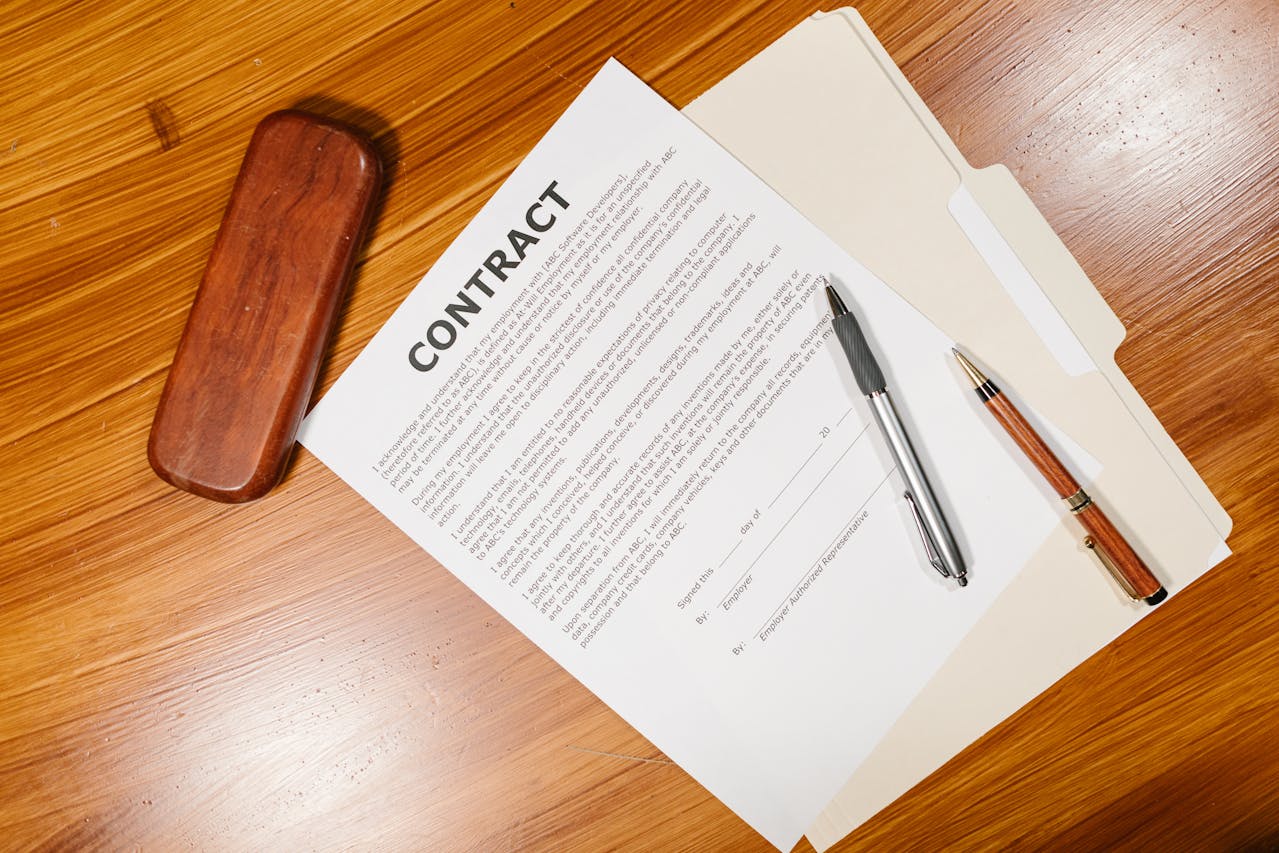
Introduction
A settlement agreement is a form of contract that is created between the parties who are facing disputes. They agree to set out their issues via a settlement agreement. The settlement agreement is binding to the parties. We often see that many lawsuits are settled via a settlement agreement before the completion of the trial. Civil litigation is complex and is also a time and money-consuming process. In that situation, choosing a settlement is the best practice for resolving legal disputes out of court.
In this article, we explore the question of whether a settlement agreement is a contract. A settlement contract is legally binding on the parties involved, enforceable in court, and has other legal consequences.
What is a Settlement Agreement?
A settlement agreement is a contract made between the parties to resolve their dispute without entering into the court process. A settlement agreement becomes a legally binding contract to the parties involved after it is signed.
Generally, a settlement agreement is used for different legal disputes, such as employer and employee issues, legal contract-related issues, matrimonial disputes, landlord and tenant disputes, etc.
There is no straitjacket formula for a settlement agreement. That can be made via negotiation between the parties, with the help of a mediator, or in some cases, the parties can resolve their legal dispute with the help of a broker.
In a settlement agreement, the parties set the terms and conditions of the resolution. These can include resolving the process of damages, the obligations of each party, and the closing process of ending a legal dispute. After the parties sign the settlement agreement, it becomes a legally binding contract that can be enforced in the event of breaches.
What is the purpose of a settlement agreement?
A settlement agreement plays a significant role in settling a legal battle between the parties.
- A settlement agreement aims to resolve disputes perfectly without going to court. By entering a settlement agreement, parties can easily end their existing legal disputes. A legal battle is not easy; the proceedings may take a lot of time and money, and the result also depends on the uncertainty of the parties involved.
- A settlement agreement provides good, effective, and fast ways to resolve disputes that are beneficial for the parties. By entering into the settlement, the parties can avoid a lengthy court trial and save time and expenses of the court proceedings.
- The parties have full control of the outcome of a settlement agreement. They are well aware of all the terms and conditions and agree.
- It is suitable for the parties involved because the court decision may be unpredictable, and that is binding to them.
- By entering a settlement agreement, the parties can decide their terms and conditions according to their wish.
- A settlement agreement is fully negotiated compared to the court ruling. The parties can set the terms, discuss the disagreement, and happily resolve it.
- A settlement agreement provides privacy to the parties. In a court trial, however, it is deemed as a public record; thus, it can be accessible publicly. It may harm or damage the parties if any sensitive information goes to the public. A settlement agreement provides a confidential clause that can help to keep the privacy of the contracting parties.
- Settlement agreements reduce the unwanted burden on the judicial system and the parties involved, saving time and resources.
- A settlement agreement gives certainty to the parties involved. This factor is missing in the court trial. The court ruling may be uncertain or unfavorable and binding to the parties.
What should be included to make an effective settlement agreement?
To make an effective settlement agreement, you should include some clauses that are agreed upon by the parties involved. Such as:
- Mentions the financial details and payment modes. It should also include the clause in detail, what type of actions can be taken it the party fails to perform the obligation. For example, parties need to return the firm property if the contract ends or if the party releases their rights.
- Specify all the details related to the division of assets, child custody, and confidential details if any sensitive information is required to be protected.
- Mention the area, law, and jurisdiction that apply to the settlement agreement.
- Contribution of legal charges and costs, which come out for agreeing. Such as registration fees, consultant expert fees, etc.
- Declaration of the information on the basis of the settlement agreement form between the parties.
- Mention the clauses that are not to be included by the parties.
Settlement agreements may vary according to the purposes of the parties. Other clauses and terms can be included, which are agreed upon by the parties. Some settlement agreements allow the parties to amend at a later date, but it depends upon the parties. If the parties cannot decide on the proper settlement terms and conditions, it is advisable to consult an expert lawyer or business expert. They can help to outline the terms and conditions, which is beneficial for both parties.
Is an unsigned settlement agreement binding to the parties?
No. A settlement agreement becomes legally binding to the parties after it is signed. The parties come together via a settlement agreement and decide how to resolve their legal disputes. After the completion of the negotiation, they set the terms and conditions and prepare a document that needs to be agreed to and signed. Then, it becomes a binding settlement agreement to them. In the way of settlement, the parties can make counter offers, negotiate, accept or reject the terms. However, if the parties are not willing to sign, it is known they do not agree on the settlement agreement, and it can be treated as a legally enforceable agreement between them.
How to enforce settlement agreements?
After the parties sign a settlement agreement, it becomes binding to them. No one can escape from their obligations towards the agreement. However, if the parties breach the contract or fail to perform an agreement, the opposite party has a right to enforce the contract. They can reach to the court for breach of contract. They can pray to the court for remedies for the breach of contract.
If the court is satisfied that the contract is breached by the party. Then, the breaching party can be ordered to fulfill their obligations under the contract’s terms or can be ordered to pay the damages or losses. In some cases, the contracting parties include a clause in a settlement agreement related to the penalties or actions for non-performing of the contract. That clause also is enforceable in a court of law.
What are the benefits of a settlement agreement?
There are lots of benefits for entering into the settlement agreement. The main significant benefit is that the parties can select the best options for resolving their dispute without reaching the court. It is also helpful to resolve the existing litigation between the parties.
When the parties enter into the agreement, they specify the dispute’s resolution clauses. For example, if any confusion, disagreement, or disputes come out between the parties, they can settle the dispute by mediation.
The settlement agreement also specifies a confidential clause that allows the parties to resolve disputes out of court. They are also beneficial for the judiciary and the parties as they reduce the burden of trial, which saves time and litigation expenses. Overall, the settlement agreement creates a healthy and wealthy relationship between the parties and a familiar atmosphere in the business world.
Conclusion:
A settlement agreement is a legal document made between the parties concerning disputes. After it is signed by the parties, a settlement becomes legally binding. A settlement agreement is a best practice for resolving legal disputes out of court. It is beneficial not only for the parties but also for the judicial system to save time and costs. It also helps to maintain a good relationship between the parties and reduce stress; as a result, they can focus on achieving business goals.
Also Read:
How To Write An Agreement Between Two Parties?
Content of the Contract: What You Need to Know While Writing an Effective Contract





